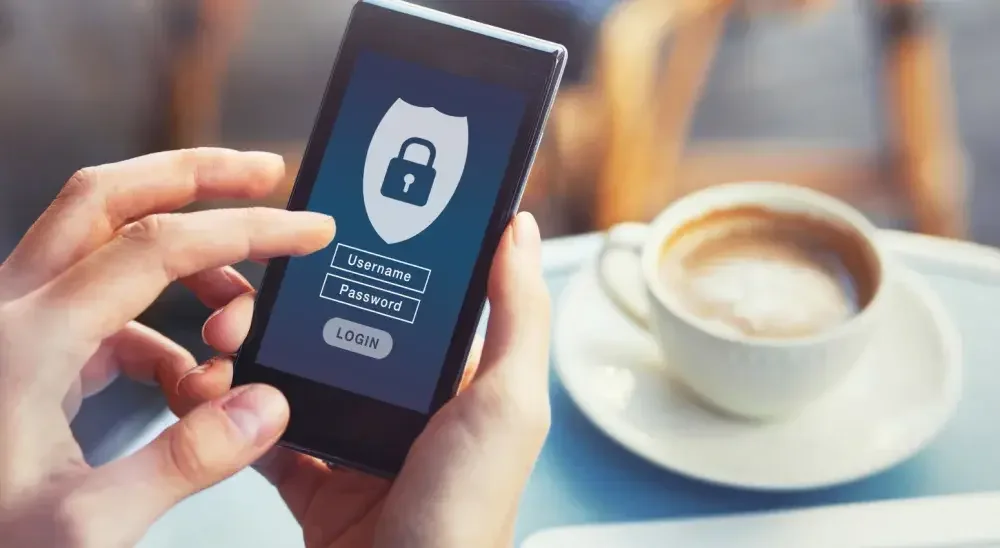Virtual addresses give individuals and businesses significant flexibility—they can receive and respond to postal mail items from anywhere in the world. Plus, freelancers or independent business owners can use a virtual address to keep their personal mailing addresses private.
But if you use a virtual address for your postal mail, are you sacrificing data privacy in favor of agility?

Virtual address service
The good news is that if you use a virtual address service that follows best practices for security and privacy, your information will be as secure as if you received it in your physical mailbox—perhaps even more so.
The bad news is that not all virtual address services follow those best practices, which is a major problem. Many of your most private and confidential documents come through the mail—W2s, healthcare records, tax documents, investment statements, and checks. That's why it's a federal offense to steal someone else's mail.
Arming yourself with updated information about how virtual address services work and what they should be doing to protect your privacy will allow you to make an informed choice about whether to use a virtual address service and how to choose a provider.
How does a virtual address work?
If you've never heard of a virtual address or virtual mail, the concept can be confusing. Isn't virtual mail just … email?
Providers use a number of similar phrases—virtual physical address, digital mail, virtual mail, virtual mailbox—to describe a service that aims to digitize mail so that people can receive and respond to postal mail even if they're not in a physical office space.
At its most basic level, a virtual address works like this:
- You choose an address that's owned by a virtual address service.
- Mail sent to that address is received by the virtual address service.
- The virtual address service scans the mail and uploads it to a cloud-based service where you can see it.
That's the root process, but there's a significant variation in the details of what is a virtual mailing address and how an address service actually operates. And those details matter when it comes to your privacy and the security of your confidential information.
For instance, some best virtual address services contract with third parties to scan or dispose of mail items—an operational detail that automatically creates a reduced level of oversight and security.
How do virtual address services ensure security?
Any virtual address service's number one priority must be maintaining the security and privacy of your information.
There are several security best practices for virtual addresses you should look for when you're choosing the best virtual address service:
- Authorization by the United States Postal Service (USPS) to receive and store mail
- A secure facility that has 24/7 monitoring and restricted access technology
- Background checks and extensive training of all employees with access to mail
- Barcode tracking of all mail items at every stage of processing
- Onsite destruction and shredding of mail items under supervision
- Mail items only opened and scanned with permission from the mail owner
Putting these practices in place can be time-consuming and expensive and can put some limits on a business's ability to expand, which is why not all businesses implement them. We decided early on that security and privacy were non-negotiable, so we created a sophisticated production line at Earth Class Mail, a LegalZoom company, that prioritizes security, accuracy, and efficiency.
We get over 5,000 new mail items every day, and each piece that arrives gets its own identifier—a barcode used to audit every single operation that's performed on that piece of mail.
For instance, if a customer requests that a piece of mail be shredded, an employee doesn't run over to a shelf, grab a document, and shred it.
Here's how it works: the request prompts an internal work order. The operator receives the work order, scans the barcode on the appropriate bin, and verifies the correct piece of mail by scanning its barcode before anything gets shredded. Each step in the process ensures that all actions taken match the customer's intent. Plus, the customer can see a full report of every transaction.
We developed our process to give our customers fast and accurate service while providing them with the highest level of security and data privacy.
How do virtual address services maintain data privacy?
When you're turning your mail over to someone else, you want to be sure that the correct actions are occurring to your mail as well as that the virtual address service is handling it in a way that safeguards your privacy.
So what can a virtual address service do to make sure your private data is kept…private?
We answered that question by focusing on three parts of our business: facilities where mail is received and stored, employees who handle mail, and the processes involved with handling mail.
Managing virtual mailing address facilities to ensure privacy
A virtual address service that is focused on safeguarding your privacy will have mechanisms in place to limit access to that mail.
Though we have more than 80 virtual addresses around the country, all of our mail is received and processed in our main mail processing center in Beaverton, Oregon. Our facility is monitored by camera, and we use best-in-class restricted access technology to ensure that only approved personnel can enter the facilities.
Some virtual address services partner with local small businesses that have available real estate and are willing to share their physical address. Employees of that small business scan the mail. This practice raises a number of privacy concerns, one of which is whether the local business's office has any security system in place to keep unwanted individuals out.
Virtual address employee practices to ensure privacy
A virtual address service must thoroughly vet potential employees and have complete oversight of employee actions so that they can prevent any privacy breaches.
At Earth Class Mail, we've addressed this need by performing background checks on all employees and requiring extensive training of any employees who handle mail.
We maintain complete oversight during the mail-handling process. Virtual address services that partner with local businesses, as mentioned above, often use the employees of that business to scan received mail. This practice raises an immediate concern about oversight: Is someone present while they're scanning the mail? Would they know if that person took a quick photo with their personal phone?
We do not contract with any third parties to handle the mail. We have full control over all mail-handling activities.
Managing the mail handling process to ensure privacy
A secure facility and well-trained employees won't safeguard your privacy unless the virtual address service has security measures built into its processes. Without them, an employee could accidentally scan and send confidential information to the wrong person.
Again, that's why virtual mailing address services that contract with local businesses raise such privacy concerns. Even without any intended wrongdoing, there are plenty of opportunities to create accidental data breaches.
These privacy and security concerns are the reason we spent years perfecting a production line that includes barcode tracking and auditing at every step of the process—so accidents simply aren't an option.
This combination of secure facilities vetted and trained employees, and sophisticated processes means we can feel confident ensuring our customers that their private and confidential information will remain so.
Questions to ask when choosing a virtual address service
If you're in the process of choosing a virtual address service, these questions can help you determine whether the service provider you're considering has security measures in place that will protect your private information.
- 1. Is this service provider authorized by the USPS to receive postal mail?
- 2. Do all employees who process mail undergo background checks?
- 3. Is the facility that receives my mail monitored and restricted access?
- 4. Do any third parties handle my mail, either for processing or destruction?
- 5. Does the service provider have a tracking system in place to audit mail processes?
- 6. Will I be able to access a record of all the actions taken on each piece of my mail?
At Earth Class Mail, we take the responsibility of receiving mail seriously. And we have a great deal of respect for the customers that trust us to handle some of their most valuable assets—their personal and confidential information.
While we would love to provide a virtual mailing address for everyone who needs one, we're most concerned that anyone using a virtual mailing address service knows their private information is safe. So even if you choose to use a different provider, make sure they're following security best practices. Ask them the questions we've included here, and don't turn over your postal mail to a company that isn't 100% focused on protecting your information.

